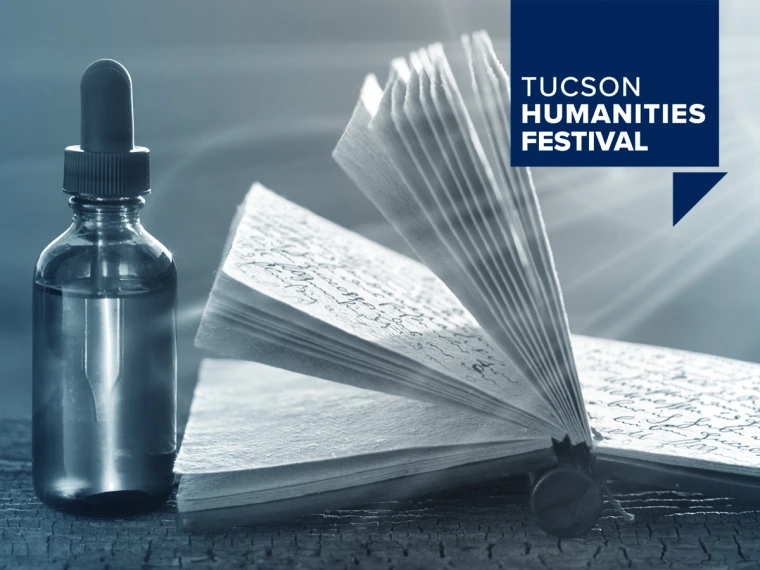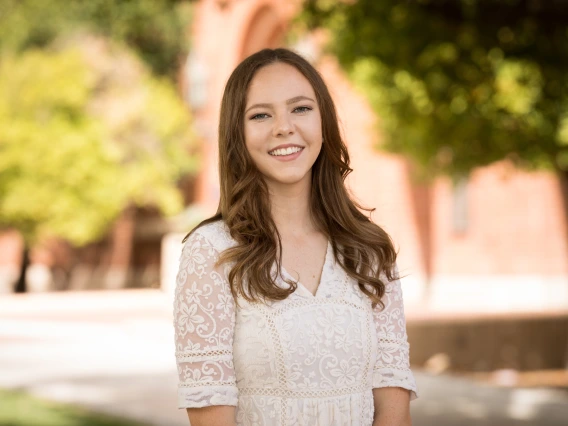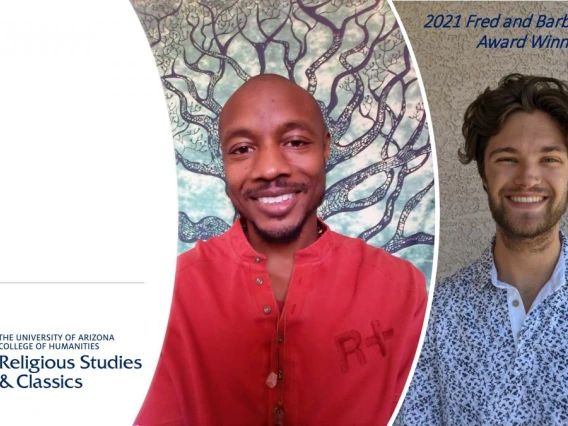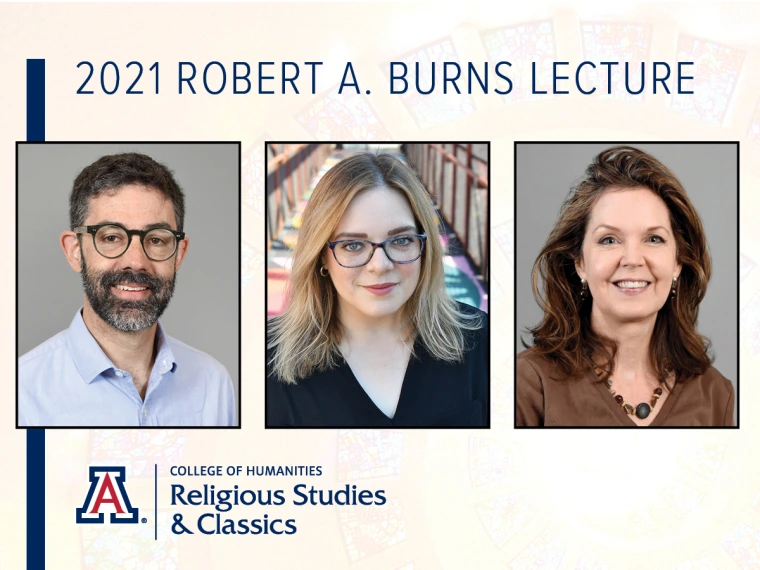Rombach and Bretall 2022 Awardees
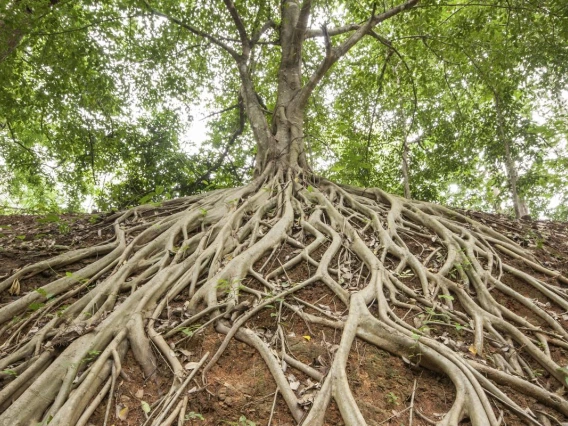
The Department of Religious Studies and Classics is happy to announce the winners of the Lionel Rombach and Ora Bretall Scholarship Awards for the 2021-2022 academic year.
Awardee for the Ora Bretall Award is: Kidron Grace Martin.
Awardee for the Lionel Rombach Award is: Cameron James Dockens.
Congratulations to our outstanding Religious Studies majors!
Read (in their words) how majoring in Religious Studies has enriched their lives and studies:

Cameron James Dockens:
I chose to study religious studies to get a well-rounded education, and then I fell in love with the content and the department. It has given me the opportunity to explore the human experience in both my Religious Studies and Neuroscience degrees. Due to the prevalence of religion in every aspect of life, Religious Studies has added depth and even more importance to almost every concept I’ve learned in my other courses. Religious Studies also connects people across different backgrounds and forces students to think through others’ point of view. My Religious Studies experience has prepared me for whatever I choose to pursue in the future!

Kidron Grace Martin:
Studying Religious Studies has always been a passion of mine, so I was thrilled when I learned that I could major in the field at the University of Arizona. I thought the major would pair well with my History major. The disciplines of History and Religious Studies are very intertwined, as both fields focus on societies and their ideologies. The Religious Studies major allows one to look at the belief systems that societies view as crucial to their culture, which provides context for why societies behave the way they do in history. The Religious Studies major has meant so much to me, and I have already noticed the wonderful impact it has had on my undergraduate career. The major has inspired me to want to find a career that is rewarding in terms of helping other people. In learning about different religions around the world, it has been interesting to see how many religions encourage participants to take care of each other. I have learned so much about other religions and even more about Christianity, and I feel like I have developed a good understanding of how religion affects everyday life in different cultures. My learning
has also brought me to the conclusion that many religions have shared sacred values, and ultimately, religious systems are not all that different from each other. Most systems promote values that encourage participants to be the best versions of themselves and take care of others, while also respecting and upholding sacred moral values. The academic study of religion is important because it enables the cultivation of a greater understanding of the multicultural nature of this world. This understanding is becoming more crucial each day as we live in a globalized society and now have the capacity to connect with others on a greater and more frequent scale than ever before. Therefore, it is important to have majors, like Religious Studies, that allow us to break down the fear of the unknown through recognizing
the importance of sacred cultural values among global societies. I am so grateful for the opportunity to major in Religious Studies, and it has contributed to my skills repertoire for future jobs.



